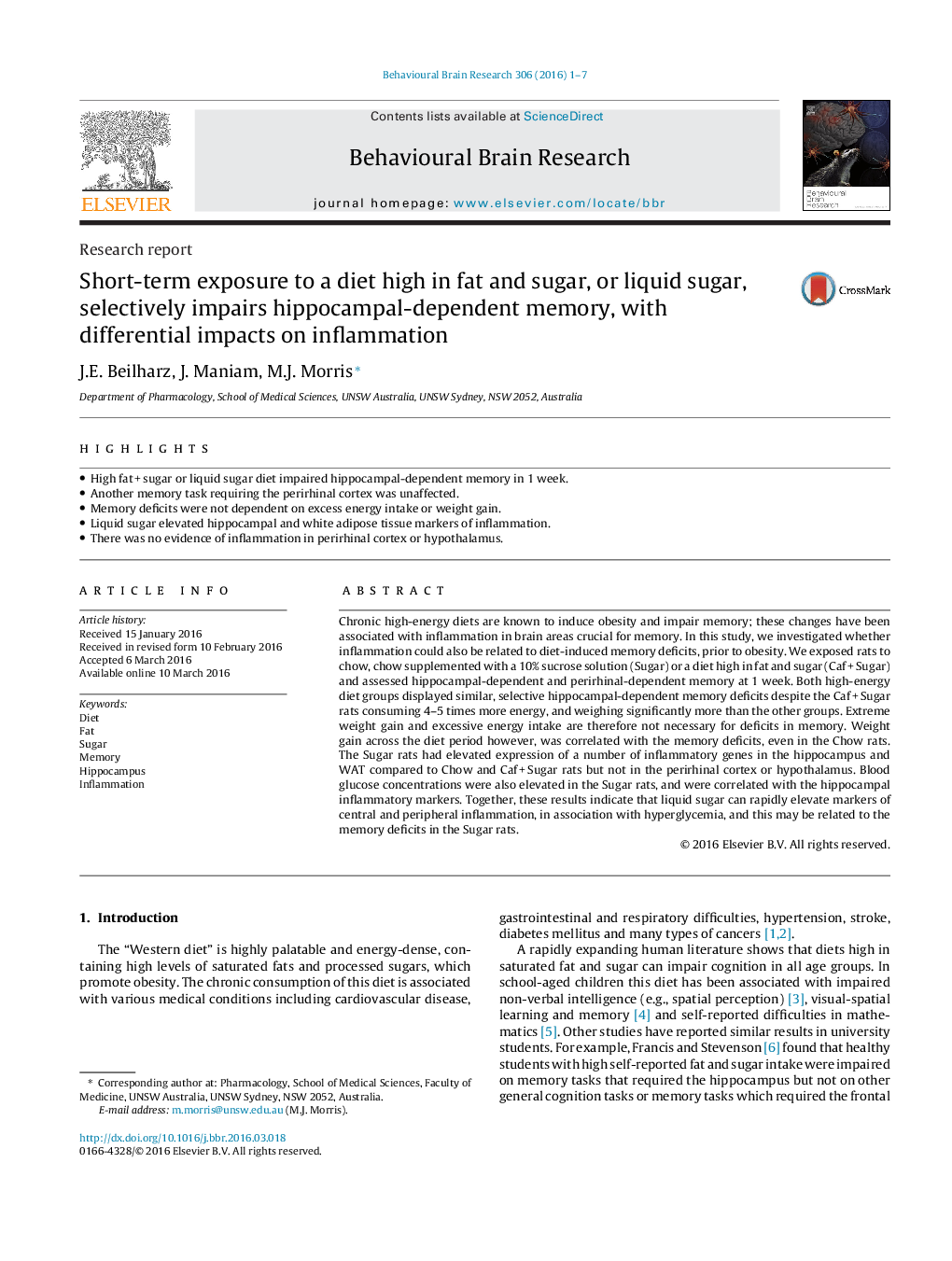| Article ID | Journal | Published Year | Pages | File Type |
|---|---|---|---|---|
| 6256070 | Behavioural Brain Research | 2016 | 7 Pages |
â¢High fat + sugar or liquid sugar diet impaired hippocampal-dependent memory in 1 week.â¢Another memory task requiring the perirhinal cortex was unaffected.â¢Memory deficits were not dependent on excess energy intake or weight gain.â¢Liquid sugar elevated hippocampal and white adipose tissue markers of inflammation.â¢There was no evidence of inflammation in perirhinal cortex or hypothalamus.
Chronic high-energy diets are known to induce obesity and impair memory; these changes have been associated with inflammation in brain areas crucial for memory. In this study, we investigated whether inflammation could also be related to diet-induced memory deficits, prior to obesity. We exposed rats to chow, chow supplemented with a 10% sucrose solution (Sugar) or a diet high in fat and sugar (Caf + Sugar) and assessed hippocampal-dependent and perirhinal-dependent memory at 1 week. Both high-energy diet groups displayed similar, selective hippocampal-dependent memory deficits despite the Caf + Sugar rats consuming 4-5 times more energy, and weighing significantly more than the other groups. Extreme weight gain and excessive energy intake are therefore not necessary for deficits in memory. Weight gain across the diet period however, was correlated with the memory deficits, even in the Chow rats. The Sugar rats had elevated expression of a number of inflammatory genes in the hippocampus and WAT compared to Chow and Caf + Sugar rats but not in the perirhinal cortex or hypothalamus. Blood glucose concentrations were also elevated in the Sugar rats, and were correlated with the hippocampal inflammatory markers. Together, these results indicate that liquid sugar can rapidly elevate markers of central and peripheral inflammation, in association with hyperglycemia, and this may be related to the memory deficits in the Sugar rats.
